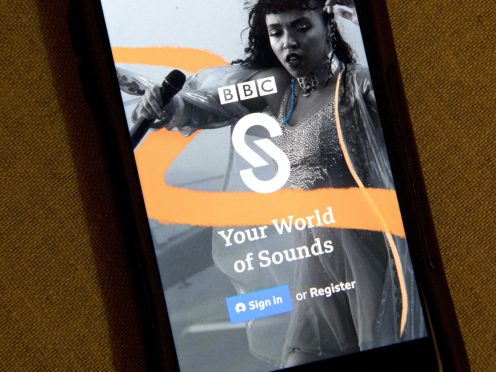Media regulator Ofcom will consider the “market position” of BBC Sounds following concerns from commercial radio.
Launched in 2018, BBC Sounds is designed as a “digital home” for audio content, featuring live and on-demand radio, music mixes and podcasts.
The watchdog said it would “take stock of Sounds at an appropriate point in its evolution”.
It said in a statement: “There have been a number of incremental changes to BBC Sounds, and some stakeholders in the commercial radio sector have concerns about its development.

“Ofcom therefore intends to consider the market position of BBC Sounds through a public process.”
An Ofcom spokesman said it will ask for “evidence from stakeholders about the adverse impact of Sounds on the market”.
But he added: “We are not coming at this from the perspective of having particular concerns regarding the development of BBC Sounds. This is about taking stock of Sounds at an appropriate point in its evolution.”
Ofcom is not launching a consultation but asking for evidence from stakeholders “to help us evaluate the most appropriate next steps”.
BBC Sounds replaced the iPlayer Radio app.
The new development comes after broadcaster Libby Purves said the arrival of the app, as well as social media, has made radio a more ageist platform.
The medium has become “more visual, thus ageist”, since the advent of websites, social media, webcams in studios and “photos larded all over the BBC Sounds app”, she told Radio Times.
The watchdog also said it had would not require the BBC to conduct a public interest test for Radio 1 Dance, a new 24-hour dance music stream launching on BBC Sounds, because “the impact of the new stream on the market is likely to be small”.
A BBC spokeswoman said: “We have always been open about our plans for BBC Sounds.
“We’ve had relevant approvals from Ofcom for all key developments, including Radio 1 Dance, and we’ll continue to liaise with them and our colleagues in commercial radio.
“As listening habits change and global players like Spotify and Apple look to dominate the market, we want BBC Sounds to be the best place for audiences to enjoy our outstanding content and a key way we champion and invest in the UK audio and music industry now and in the future.”
